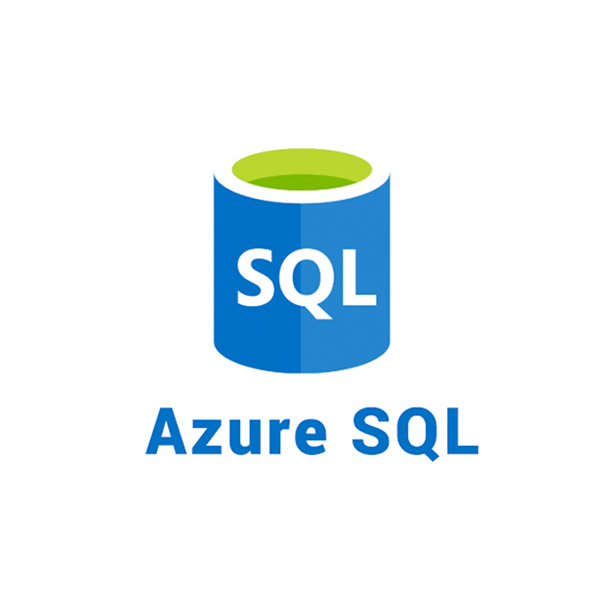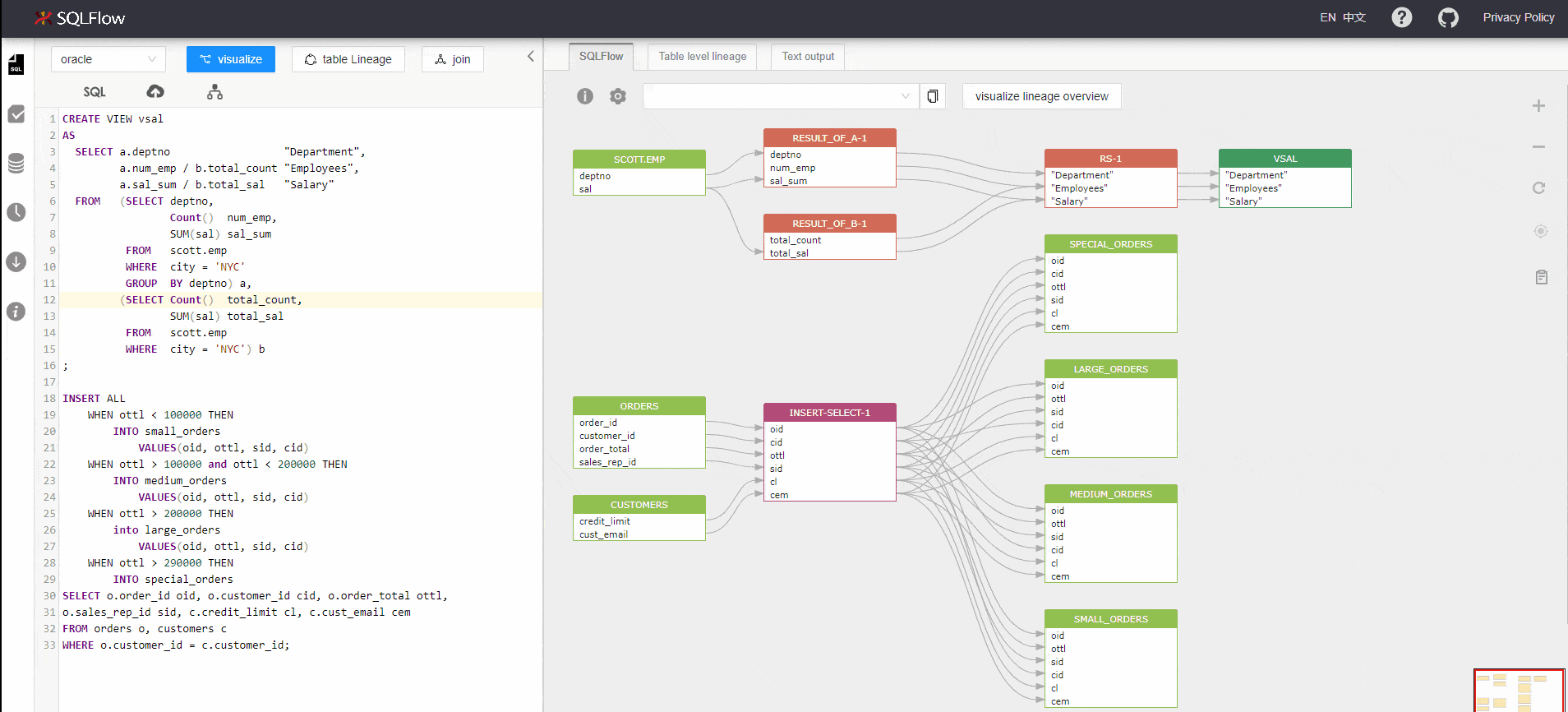Azure SQL data lineage tool
Azure SQL Database is a fully managed platform as a service (PaaS) database engine that handles most of the database management functions such as upgrading, patching, backups, and monitoring without user involvement.
Gudu SQLFlow can connect to the Azure SQL Database via its own connection. It can automate metadata discovery to deliver a complete, detailed overview of data flows in the Azure SQL Database. Using this information, Gudu SQLFlow creates a detailed visualization of the data lineage in JSON format that can be pushed into any third-party metadata management solution or viewed in Gudu SQLFlow’s native visualization.
When planning migrations, implementing DataOps, or preparing for a compliance audit, Gudu SQLFlow can help teams extract more value from their Azure SQL Database database.

Gudu SQLFlow currently scans the Azure SQL database
- SQL scripts
- View
- Stored procedures
- Data dictionaries
- functions
Discover data lineage in the Azure database in 3 minutes

What data lineage is important?
Data lineage is broadly understood as the lifecycle that spans the data’s origin, and where it moves over time across the data estate. It is used for different kinds of backward-looking scenarios such as troubleshooting, tracing root causes in data pipelines, and debugging. Lineage is also used for data quality analysis, compliance, and “what if” scenarios often referred to as impact analysis. Lineage is represented visually to show data moving from source to destination including how the data was transformed. Given the complexity of most enterprise data environments, these views can be hard to understand without doing some consolidation or masking of peripheral data points.
Why choose Gudu SQLFlow?
Gudu SQLFlow automated SQL data lineage analysis across Databases, ETL, Business Intelligence, Cloud, and Hadoop environments by parsing SQL Script and stored procedure. Depict all the data movement graphically.
It supports more than 20 major database types and still growing, including AWS Athena, Google BigQuery, Couchbase, Dax, DB2, Greenplum, SAP Hana, Hive, Impala, Informix, MDX, MySQL, Netezza, odbc, OpenEdge, Oracle, PostgreSQL, presto, AWS Redshift, Snowflake, Spark SQL, SQL server, Sybase, Teradata, HP Vertica.

